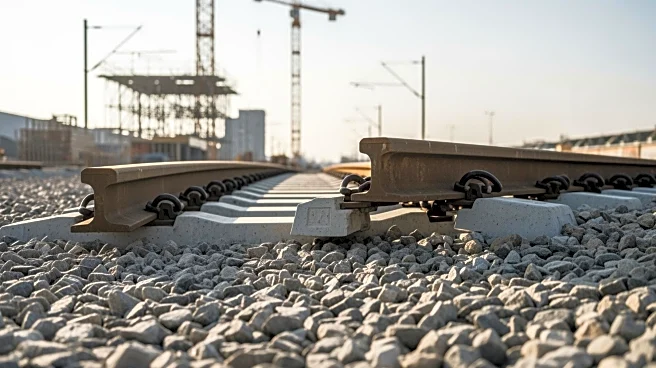What's Happening?
Network Rail has announced a delay in the completion of the Cambridge South railway station, originally scheduled to open next month, due to the collapse of a key subcontractor. The station, a £100m project managed by Murphy, is now expected to open in June
2026. The delay is attributed to the subcontractor's administration and additional design and construction work required. The station is part of the West Anglia Main Line and is designed to support the Cambridge Biomedical Campus, which is projected to create 27,000 jobs by 2031 and facilitate the development of 4,000 homes. Network Rail has appointed a replacement supplier to continue the work and is assessing the cost implications of the revised timeline.
Why It's Important?
The delay in the Cambridge South station's opening impacts the local community and stakeholders who anticipated the benefits of improved transportation infrastructure. The station is integral to the city's sustainable transport strategy and aims to enhance biodiversity. It is expected to support significant economic growth through job creation and housing development. The delay may affect the timeline for these economic benefits and could lead to increased costs for Network Rail. The situation underscores the challenges in large infrastructure projects, particularly when subcontractors face financial difficulties.
What's Next?
Network Rail is working with its principal contractor, Murphy, to mitigate the impact of the delay and ensure the station's completion by June 2026. The organization is focused on minimizing additional financial impacts and delivering the project efficiently. The completion of the station will eventually provide improved access to the Cambridge Biomedical Campus and support the city's transport and economic development goals. Stakeholders and the local community will be monitoring the progress closely, as the station's opening is crucial for regional growth.
Beyond the Headlines
The delay highlights the complexities involved in coordinating large infrastructure projects, particularly those requiring detailed integration of mechanical, electrical, and plumbing systems with civil works and architectural design. It also raises questions about the financial stability of subcontractors in the construction industry and the potential risks they pose to project timelines and budgets. The situation may prompt a reevaluation of subcontractor management and contingency planning in future projects.
















